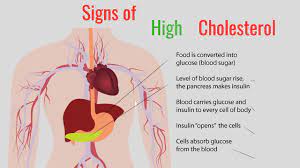What Are Antibiotics?

Antibiotics are medications that either destroy or slow the growth of bacteria. They have proven successful in treating certain types of infections and, when administered properly, antibiotics have the potential to save lives.
Antibiotics are sometimes prescribed by healthcare professionals in certain patients before surgery to help prevent infection from a cut on the skin – this practice is known as antibiotic prophylaxis.
These drugs can be divided into six classes or groups. They each work differently against various types of bacteria, both aerobic and anaerobic.
Some antibiotics are more powerful than others against certain germs, while some can be taken for a longer duration than others. That is why it is essential to follow your doctor’s instructions regarding antibioti use.
Your doctor may need to perform a laboratory culture in order to select the appropriate antibiotic forc your type of infection. Selecting an inappropriate antibiotic can make matters worse and increase its likelihood for antibiotic resistance development.
It is essential to finish your antibiotic course as quickly as possible, even if you feel better. If you stop taking the medicine too soon, some of the bacteria may survive and re-infect you.
Antibiotics often cause side effects, such as diarrhoea, vomiting and drowsiness. While these reactions are typically mild and temporary, they can become serious enough to require medical attention in an emergency room.
Many antibiotics can interact with other medicines, affecting their effectiveness and altering the levels of each in your bloodstream. Some interactions can be severe and have serious repercussions for health – such as kidney damage or stroke.
These drugs may pose risks to pregnant women and people living with HIV/AIDS. Furthermore, they have the potential to cause allergic reactions such as rashes and itching.
Infants and children, as well as those taking immunosuppressive drugs like steroids or cancer chemotherapy medications, should be cautious.
Other measures you can take to minimize antibiotic resistance and minimize side effects from antibiotics. These include taking only those antibiotics prescribed by your doctor and not sharing your medication with anyone.
Antibiotics may not always be effective against viral infections, such as the common cold or flu. They may not eliminate all viruses responsible for these illnesses, leading to antibiotic resistance in some of them.
Antibiotic overuse or inappropriate prescription by healthcare professionals are two major contributors to antibiotic resistance. When antibiotics are overused, it often indicates an issue with dosage accuracy or improper dosing.
Some of the most frequent causes for overuse or misuse of antibiotics include:
Antibiotic resistance can develop when people with viral infections, like the common cold and flu, are overused. This is because viruses cannot be killed by antibiotics and infections can spread to other parts of your body.






